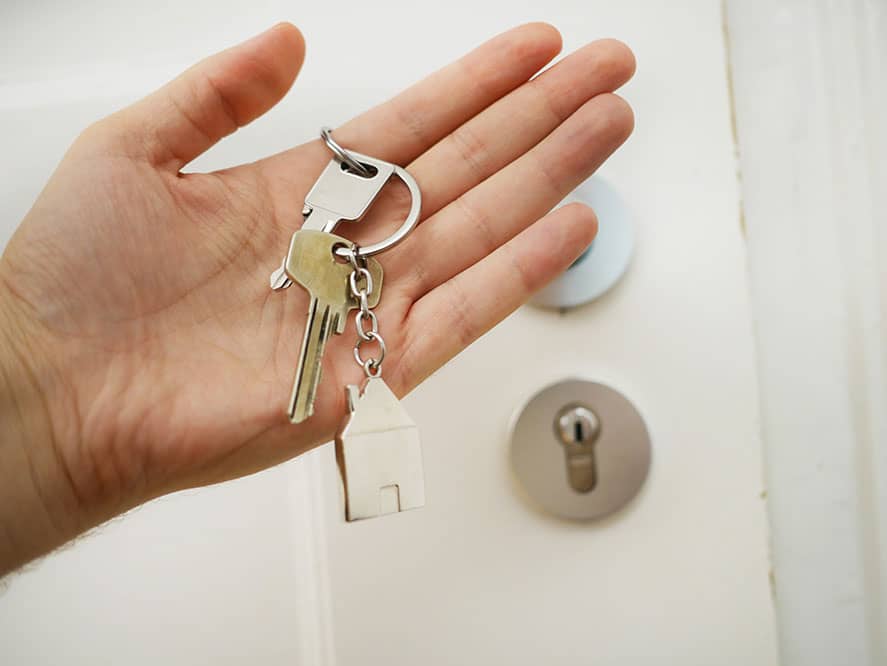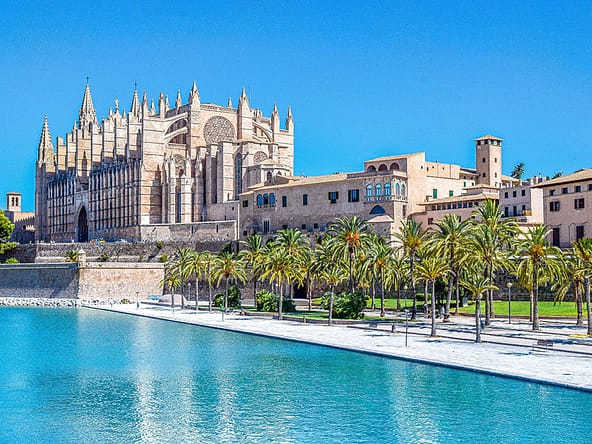Luxury properties in France are known for their beautiful surroundings, high-class lifestyle and sought-after exclusivity. Foreign buyers specifically are drawn to the country’s rich culture and history, appealing climates (whether you want mild Mediterranean temperatures year-round or all four seasons), and some of the world’s most stunning homes.
However, falling in love with a property and being able to buy it are decidedly different. Knowing what fees, taxes and add-on expenses to expect will give you a more realistic idea of what you can spend on the listing price while still leaving enough to cover everything else.
We’re here to explain everything you need to know about the hidden costs of buying property in France and the expenses that are not always known at the outset.
Table of Contents
What Are the Requirements and Conditions for Making a Deposit on French Property?
Typically, a deposit on French property is 5% to 10% of the purchase price. It’s common to pay the deposit when the contract is signed. While you’ll probably pay it to the notaire, it’s possible you’ll be asked to pay the agent instead.
The Preliminary Sales Agreement
The preliminary sales agreement is called the Compromis de Vente. It outlines the current details of the sale and secures the property for the buyer. Certain conditions may change before the final contract is written, and they’ll be agreed upon by both parties.
Once the agreement is signed and the deposit is paid, there’s a mandatory 10-day cooling-off period. During this time, buyers can change their minds about the purchase and withdraw from the contract without paying a penalty and will also receive their deposit back.
Deposit Security and Refund Conditions
Until the sale of the property is complete, the deposit is held in escrow by the notaire, which means it’s not yet available to the seller. Make sure that they have a compte sequestre, which is the appropriate type of holding account for a deposit.
What Are the Main Legal Fees Involved in Buying Property in France?
In this section, we’ll explain the notaire fees.
Notaire Fees
Notaire fees are approximately 2% to 3% of the purchase price for new builds and 6% to 8% of the purchase price for existing properties.
There are a few different fees that factor into the overall notaire’s fee, such as where the property is located and the property’s value.
The largest portion of the fee is the droits d’enregistrment, which is like France’s stamp duty (i.e., a tax on property purchases). This is usually around 5% to 6% of the property’s value.
The rest of the fee includes land registry costs and payment to the notaire for their work. If you’re purchasing the property with a loan, there will also be a loan registration fee of up to 2% of the loan value.
The seller will appoint a notaire, and you can have your own notaire as well if that’s your preference. You won’t pay more in fees if there are two notaires working on the sale – the fees will be split between the two.
How Much Will Financing Fees Add to Your Total Costs?
If you’re taking out a mortgage in France, you’ll have to put a deposit down for that, which is usually around 20% of the home’s value. Find out the repayment terms so you know how much interest you’ll be paying on the mortgage, which will raise the total cost of owning the property.
When mortgage rates are low, you may be tempted to get a French mortgage instead of paying for the entire cost of the property out-of-pocket. However, note that with a mortgage, you may also be required to pay an arrangement fee to your bank. It’s beneficial to use a broker to arrange a mortgage because many brokers don’t charge extra fees.
If you’re going to take out a French mortgage, it’s important to know that you’ll also be required to get life assurance. Many lenders make it mandatory to purchase one of their policies. Plus, some lenders will also require that disability coverage is included in the policy you choose.
What Are the Ongoing Ownership Taxes and Fees After Purchase?
Once you’ve purchased the property, you’ll have to pay fees and taxes on a regular basis. This is important to know before you buy a home in France.
There are two types of taxes you’ll pay annually: the taxe foncière, a land tax paid for by the property owner, and the taxe d’habitation, a residence tax that the property owner pays unless they rent out the property long-term.
The rates for both taxes will vary based on a number of factors. The taxe foncière rate is based on factors like how much land the property includes and where it’s located in France. The taxe d’habitation rate is more complex, based on the property’s rental value and the fixed tax rate in that part of the country.
How Can Foreign Buyers Prepare for Currency Exchange and Transaction Fees?
It may cost you to convert your money in order to pay all of the necessary expenses when buying property in France. As the exchange rate fluctuates, it may cost you more or less to exchange your money. A currency exchange company may let you set a rate ahead of time so that you know exactly what you’ll pay.
To keep foreign exchange costs down, you’ll want to use a foreign exchange specialist who may be able to save you part of the fee, as much as 5% of what your bank would charge you.
The reason banks charge such a high foreign exchange rate is because they set a daily exchange rate and then also charge for the transaction itself. A specialist, on the other hand, watches the foreign exchange market much more closely, often by the minute, and will be able to secure the best deal possible while also waiving the transaction fee.
What Other Fees or Costs Might Arise in the Buying Process?
There are a few additional fees that could arise during the buying process. Let’s go over two common ones.
Agent’s Fee
When a property seller works with an agent to market and sell their home, they agree on the fee the agent will get. The price of the property may or may not include commission.
Commission can range from 5% to 10% of the property value, but the average is usually around 6%. Low-value properties often come with higher fees.
If you see “FAI” in the agent’s ad for the property, that stands for frais d’agence inclus, which means the agent’s fees are included. In that case, the seller will pay the agent out of the money they receive for the sale. However, if you don’t see FAI in the property listing, you may be responsible for paying the commission. It is always a good idea to check with the agent to be sure.
Translation Services
If you are not fluent in French, you may want to hire a translation service.
Translation service fees vary based on the project, the language you need the French documents translated into, and how much specialisation the translation requires.
Most of the time, translation services are charged per word. However, if the project requires urgency, the cost may be higher to be expedited.
Final Thoughts
Whether it’s been a lifelong goal of yours to live in France or you fell in love with the country during your last holiday, living there is a dream come true. But in order to make it a reality, you need to understand legal costs and fees in order to budget correctly.
It’s always best to consult with professionals to ensure you understand all of the associated expenses before finalising the purchase.
HOMEHUNTS property agents are able to select beautiful luxury properties in France based on your specific search criteria. Whether you want to live in the middle of a busy city or in a more tranquil setting, there is going to be a French property that meets your needs. Search our website and browse the extensive selection of luxury homes available to buy. Alternatively, you can also speak directly to one of our property consultants by calling +33 (0)970 44 66 43.




